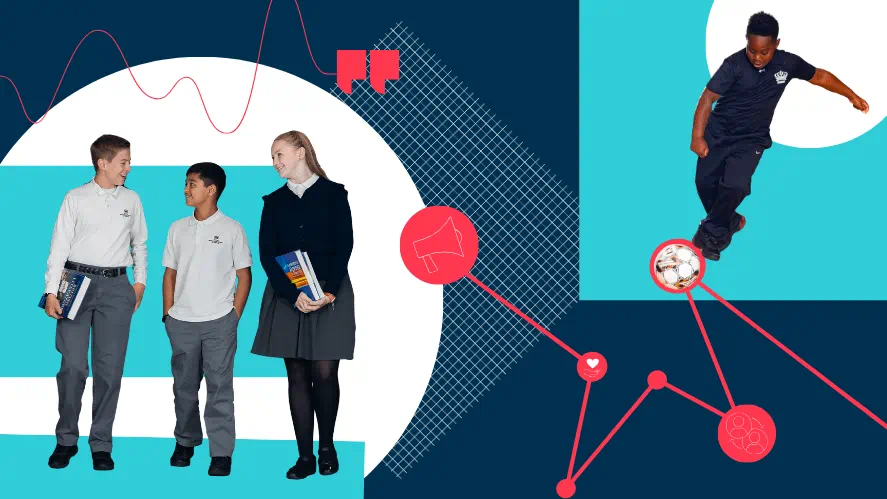What does the IBDP cover? And what’s different?
Over the two-year programme for 16-to-19-year-olds, the IBDP covers topics like Theory of Knowledge (aka ‘TOK’), which challenges students to ponder the very nature of knowledge and to see things from multiple perspectives.
Another unique aspect is the Extended Essay, where students can deep dive into research, exploring a specific topic of their choice in a comprehensive way.
Learning through the IBDP isn't confined to the classroom. The Creativity, Activity, and Service component gets students involved in arts, sports, and community work. This combination shapes them into well-rounded leaders and team players, brimming with empathy and confidence — crucial traits for real-world success.
Are there exams?
Yes. The IB exams are an essential part of the programme and are usually taken by students at the end of the two-year diploma programme, typically in their final year of secondary school. These exams assess students' knowledge and skills in various subjects chosen from the options available. However, the IBDP uses both internally and externally assessed components to grade students, making it unique in comparison to other programmes. Often, the internal assessment makes up 40% of the overall grade.
How do grades work in the IBDP?
Well, they're more than just numbers and reflect students’ growth. To earn an IB Diploma, students need to hit a minimum score of 24 out of a total possible 45 points. Last year, Nord Anglia students achieved an average of 33.4 points, beating the global average of 30.24 points, with many students achieving 40 points and above.
Why is the IBDP attractive to universities and employers?
It's because the IBDP isn't just preparing students academically. It equips them socially and emotionally, developing the critical thinking, creativity and teamwork skills needed to succeed at whatever they choose to do or be in life.






.png?h=499&iar=0&w=887&rev=f2753da44d8043a7b2a8f29df748b5cb&hash=88886D70D4C5B482D75F12F6A2D2DC20)

.jpg?h=499&iar=0&w=887&rev=f025380cfeb5441c9c164757185fe050&hash=B4D72FF069142B45912759D4BEF1BF89)
